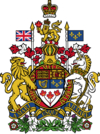
Canada Business Corporations Act – Company Law
The Canadian Corporation Act is the governing legislation for the incorporation and maintenance of a Canadian Federal Corporation. You will find below the key extracts from the Canadian Federal Corporations act along with the full act.
Company Name 
The word or expression “Limited”, “Limitée”, “Incorporated”, “Incorporée”, “Corporation” or “Société par actions de régime fédéral” or the corresponding abbreviations shall be part,
Registered Office
A corporation shall at all times have a registered office in the province in Canada specified in its articles.
Articles of Incorporation 
Articles of incorporation shall follow the form that the Director fixes and shall set out, in respect of the proposed corporation:
- the name of the corporation;
- the province in Canada where the registered office is to be situated;
- the classes and any maximum number of shares that the corporation is authorised to issue, if there will be two or more classes of shares, the rights, privileges, restrictions and conditions attaching to each class of shares, and privileges, restrictions and conditions attaching to, the shares of each series;
- if the issue, transfer or ownership of shares of the corporation is to be restricted, a statement to that effect and a statement as to the nature of such restrictions;
- the number of directors or, subject to paragraph 107(a), the minimum and maximum number of directors of the corporation; and
- any restrictions on the businesses that the corporation may carry on.
Directors
Unless the articles otherwise provide, a director of a corporation is not required to hold shares issued by the corporation.
At least twenty-five per cent of the directors of a corporation must be resident Canadians. However, if a corporation has less than four directors, at least one director must be a resident Canadian.
If a corporation has only one or two directors, that director or one of the two directors, must be a resident Canadian.
Shareholders
Where a corporation has only one class of shares, the rights of the holders thereof are equal in all respects and include the rights
- To vote at any meeting of shareholders of the corporation;
- To receive any dividend declared by the corporation; and
- To receive the remaining property of the corporation on dissolution
Certificate of Good Standing 
The certificate resembles a Certificate of Incorporation and is used to confirm the company’s continued legal existence.
The certificate certifies that:
- The company is on the Register of Companies
- There are no overdue annual or other fees due
- The company is up to date with its filing requirements
- The date the company was incorporated
- The company has not filed articles of merger or consolidation which are pending
- The company has not filed articles of arrangement that have not yet become effective
- The company is not in voluntary liquidation
- Proceedings have not been instituted to strike the name of the company off the Registrar
Company Restoration
When a body corporate is dissolved under this Part or under section 268 of this Act, section 261 of chapter 33 of the Statutes of Canada, 1974-75-76, or subsection 297(6) of the Canada Not-for-profit Corporations Act, any interested person may apply to the Director to have the body corporate revived as a corporation under this Act.
- On receipt of articles of revival, the Director shall issue a certificate of revival
- The body corporate has fulfilled all conditions precedent that the Director considers reasonable; and
- There is no valid reason for refusing to issue the certificate.


